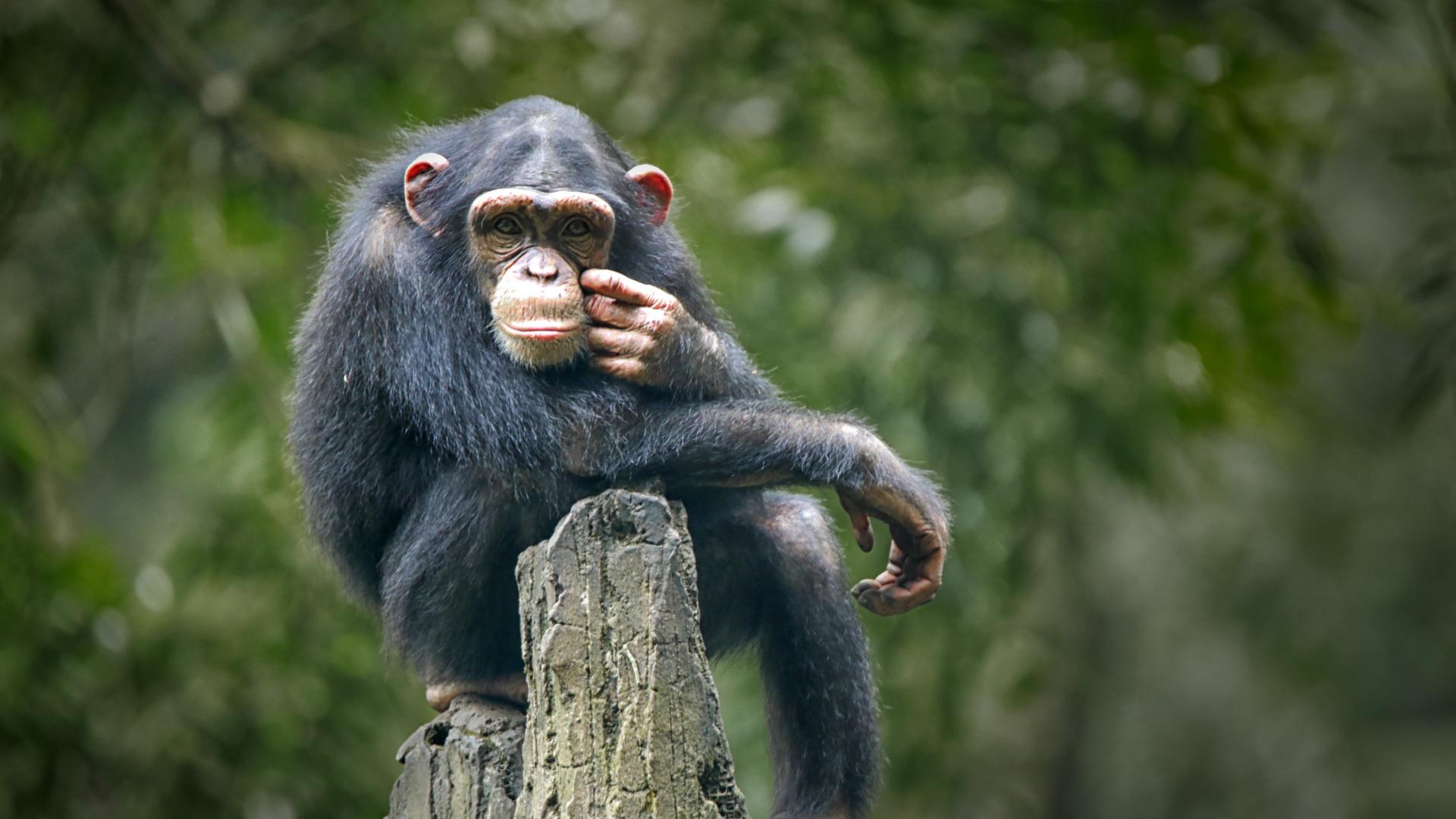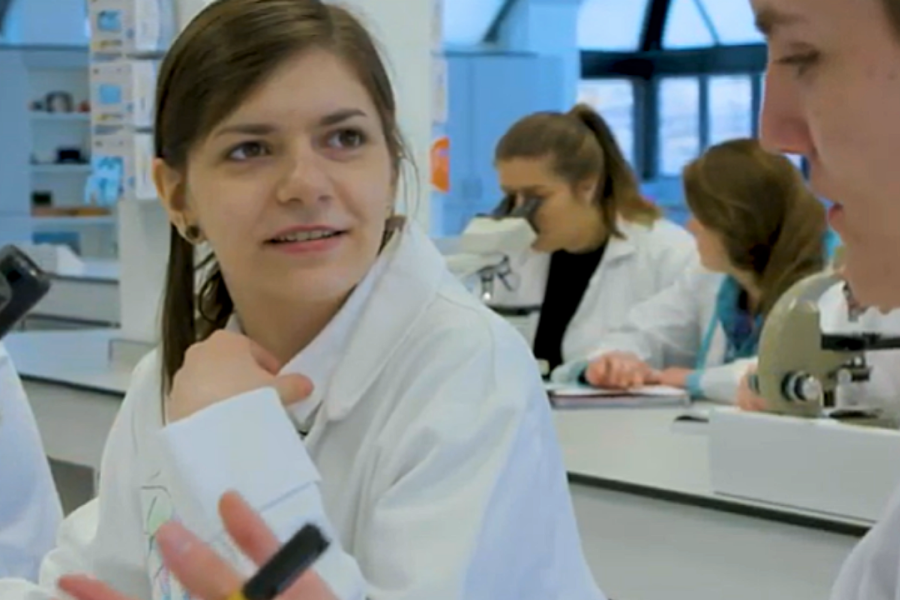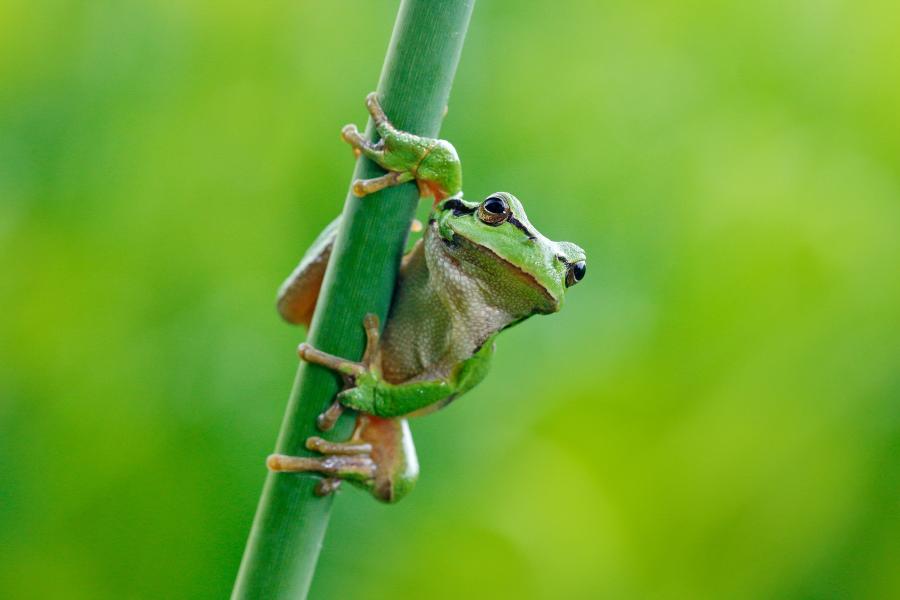About This Course
This Master in Zoology with Primatology degree ciyrse is an extended undergraduate programme which allows you to graduate either with BSc (Hons) at the end of the third year or a Masters at the end of the fourth year.
The primates (apes, monkeys, tarsiers, lemurs and lorises) are facing an extinction crisis as many of them are specialised in their biology and ecology and live in parts of the world that are especially vulnerable to habitat loss and degradation. They are also the group of animals, to which we belong, so they provide a window through which we interpret human evolutionary origins. This degree will give you with a broad zoological training with advanced knowledge of primates. As zoologists, you will examine the full diversity of animals, their evolution, behaviour, ecology, anatomy, physiology, and development. As primatologists, you will take specialised modules to build detailed understanding of the primates and develop the practical skills needed to engage in their research and conservation.
Looking to the past and the present, this course will provide you with a strong theoretical foundation of the evolutionary history and current diversity and adaptations of the primates. Looking from the present to the future, you will also develop your thinking and skills to understand and, hopefully, tackle some of the many conservation challenges that primates face in the wild.
You will have the opportunity to acquire a broad range of laboratory and field skills, at home and abroad, and all the transferable skills associated with scientific training (IT skills and data analysis, writing, scientific communication). You may also take an optional Primatology Field Course to see and learn about primates in their natural habitat (e.g., in Uganda’s Kibale National Park).
Why choose Bangor University for this course?
- TV presenter Steve Backshall is now part of our teaching team.
- Budding primatologists will be part of a School with an established and growing primatology research group, through which they can engage with ongoing research activities and interact with specialist staff.
- Our excellent teaching facilities include a zoology museum with a diverse collection of vertebrate and invertebrate specimens, including primates, a growing collection of non-human primate and early human fossil casts, marine and freshwater aquaria and a botanical garden close to the Menai strait.
Additional Course Options
This course is available with a Placement Year option where you will study for 1 additional year. The Placement Year is undertaken at the end of the second year and students are away for the whole of the academic year.
The Placement Year provides you with a fantastic opportunity to broaden your horizons and develop valuable skills and contacts through working with a self-sourced organisation relevant to your degree subject. The minimum period in placement (at one or more locations) is seven calendar months; more usually you would spend 10-12 months with a placement provider. You would normally start sometime in the period June to September of your second year and finish between June and September the following year. Placements can be UK-based or overseas and you will work with staff to plan and finalise the placement arrangements.
You will be expected to find and arrange a suitable placement to complement your degree and will be fully supported throughout by a dedicated member of staff at your academic School and the University’s Careers and Employability Services.
You will have the opportunity to fully consider this option when you have started your course at Bangor and can make an application for a transfer onto this pathway at the appropriate time. Read more about the work experience opportunities that may be available to you or, if you have any questions, please get in touch.
This course is available with an International Experience Year option where you will study or work abroad for 1 additional year. You will have ‘with International Experience’ added to your degree title on graduating.
Studying abroad is a great opportunity to see a different way of life, learn about new cultures and broaden your horizons. With international experience of this kind, you’ll really improve your career prospects. There are a wide variety of destinations and partner universities to choose from. If you plan to study in a country where English is not spoken natively, there may be language courses available for you at Bangor and in your host university to improve your language skills.
You will have the opportunity to fully consider this option at any time during your degree at Bangor and make your application. If you have any questions in the meantime, please get in touch.
Read more about the International Experience Year programme and see the studying or working abroad options on the Student Exchanges section of our website.
Course Content
On this course students are required to take 120 credits each year made up of modules that include lectures, practicals, and interactive exercises, as well as field trips and tutorials in years 1 and 2. The final year 4 includes advanced quantitative skills training and independent work on an advanced research project, supervised by a member of staff on a subject to suit the student’s interests. Modules become more specialised as the degree progresses and the number of compulsory modules varies between years, so you have more choice in how you specialise later in the degree. Assessment is by a mixture of formal examination and continuous assessment. Welsh medium modules are also available.
The Master in Zoology with Primatology is an extended undergraduate programme which allows students to graduate either with BSc (Hons) at the end of the third year or with a Master at the end of the fourth year.
Modules for the current academic year
Module listings are for guide purposes only and are subject to change. Find out what our students are currently studying on the Zoology with Primatology MZool Modules page.
Course content is for guidance purposes only and may be subject to change.
Facilities
Natural Sciences facilities
- Natural History Museum with an exceptionally comprehensive collection of vertebrate material, which includes a diverse collection of vertebrate and invertebrate specimens, including primates.
- Extensive marine and freshwater aquaria with a suite of temperature-controlled rooms.
- Pigeon loft for bird cognition, physiology, and biomechanics research.
- Treborth Botanic Garden, which covers an area of 18 hectares on the shores of the Menai Strait. It contains Europe's largest underground root laboratory (the rhizotron), a teaching laboratory, formal garden beds, a rock garden, an arboretum and a conservation collection.
- Rodent and reptile facilities.
- Our university farm based at Henfaes, about 7 miles from Bangor and totals 252 hectares. It provides facilities for research and teaching in lowland agriculture, forestry, hydrology, environmental science and conservation. We conduct fieldtrips and you can run your own large-scale experiment for your project.
- Alpaca, sheep and bee hives at the University farm at Henfaes.
- We are on the coast, next to the Irish Sea and the Menai Strait providing a range of habitat types for field courses and study sites for final-year projects.
- Dedicated reptile facilities including venomous snake rooms.
- Environmentally controlled spaces for project work.
- Insect rooms.
- Woodlands.
- Large modern teaching and research laboratories, and a dedicated student research hub for dissertation work.
- Imaging facilities.
- A very large range of analytical kit, so that you can learn how to analyse environmental samples both in the field and in the lab.
- Our very own geology collection – regarded as one of the best in the country.
- Computer laboratories for you to develop your skills in key areas such as digital mapping and environmental modelling.
- Wood library.
- Dedicated environmental research labs.
- One of our best facilities is the environment on our doorstep – you will get the chance to visit so many different places on our fieldtrips, which will cement your learning and understanding of topics.
- Our biological, chemical, and environmental laboratories are used for a range of teaching and learning. We have specific research-laboratories located in the Environmental Centre Wales, which include: a radio and stable isotope lab, a Category 2 pathogen lab, a darkened microscope room, sample preparation laboratories and a dedicated analytical instrument lab.
General University Facilities
Library and Archive Services
Our four libraries provide a range of attractive study environments including collaborative work areas, meeting rooms and silent study spaces.
We have an extensive collection of books and journals and many of the journals are available online in full-text format.
We house one of the largest university-based archives not only in Wales, but also the UK. Allied to the Archives is the Special Collections of rare printed books.
Learning Resources
There is a range of learning resources available, supported by experienced staff, to help you in your studies.
The University’s IT Services provides computing, media and reprographics facilities and services including:
- Over 1,150 computers for students, with some PC rooms open 24 hours a day
- Blackboard, a commercial Virtual Learning Environment, that makes learning materials available on-line.
Course Costs
General University Costs
Home (UK) students
- The cost of a full-time undergraduate course is £9,000 per year (2021/22 entry and 2022/23 entry).
- The fee for all placement, international, and sandwich years is £1,350 (2021/22 and 2022/23).
- More information on fees and finance for Home (UK) students.
International (including EU) students
Additional Costs
There are also some common additional costs that are likely to arise for students on all courses, for example:
- If you choose to study abroad or take the International Experience Year as part of your course.
- If you attend your Graduation Ceremony, there will be a cost for gown hire (£25-£75) and cost for additional guest tickets (c.£12 each).
Course-specific additional costs
Depending on the course you are studying, there may be additional course-specific costs that you will be required to meet. These fall into three categories:
- Mandatory Costs: these are related to a particular core or compulsory module that you’ll be required to complete to achieve your qualification e.g. compulsory field trips, uniforms for students on placement, DBS Check.
- Necessarily Incurred Costs: these may not be experienced by all students, and will vary depending on the course e.g. professional body membership, travel to placements, specialist software, personal safety equipment.
- Optional Costs: these depend on your choice of modules or activity and they are shown to give you an indication of the optional costs that may arise to make sure your choice is as informed as possible. These can include graduation events for your course, optional field trips, Welcome Week trips.
Entry Requirements
GCSE: grade C/4 in English, Maths and Double Award Science, if not demonstrated by the Level 3 qualification/s.
Offers are tariff based, 120 - 136 tariff points from a Level 3 qualification e.g.:
- A Levels: Including grade C in Biology if studying 1 other science subject (Chemistry, Physics, Maths, Psychology, Environment Science, Geography, Geology); or grade B in Biology if not studying another science subject. General Studies and Key Skills not normally accepted.
- BTEC National Extended Diploma: DDM - DDD, including Merits in 4 Biology modules. Modules accepted: Animal Biology; Animal Anatomy and Physiology; Animal Behaviour and Communication; Animal Breeding and Genetics; Biochemistry and Biochemical Techniques; Biochemistry and Microbiology; Fundamentals of Science; Genetics and Genetic Engineering; Inheritance and Genetic Manipulation; Physiology of Human Body systems; Physiology of Human Regulation and Reproduction; Wildlife Populations, Ecology and Conservation. (Other Biology-related modules considered case by case)
- Cambridge Technical Extended Diploma in Applied Science**: DDM - DDD
- City & Guilds Advanced Technical Extended Diploma (1080): DDM - DDD, including 4 Biology modules (Accepted Biology modules include: Animal Behaviour and Communication; Biological Systems of Animals; Wildlife and Ecology Conservation; Inheritance and Genetics; Ecological Concepts and Application; Population Surveys; Ecology and Conservation. Other Biology-related modules considered case by case).
- International Baccalaureate Diploma: Including H5 in Biology
- Welsh Baccalaureate: We will accept this qualification in conjunction with other level 3 qualifications
- Access to HE in Science**: Pass required
- T-levels: considered on a case-by-case basis
- Extended Project Qualification: Points can include a relevant Extended Project (EPQ) but must include a minimum 2 full A-levels, or equivalent.
We are happy to accept combinations of the qualifications listed above, as well as alternative Level 3 qualifications such as City & Guilds, Access and Cambridge Technical Diplomas.
We also welcome applications from mature learners.
International Candidates: International Candidates: school leaving qualifications that are equivalent to A levels/Level 3 and/or college diplomas are accepted from countries worldwide (subject to minimum English Language requirements). More information can be found on our International pages.
*For a full list of accepted Level 3 qualifications, go to www.ucas.com.
**Similar subject areas may be considered on a case-by-case basis.
Careers
Our students now work in wildlife management, environmental consultancy, government organisations, non-governmental organisations like the National Trust or the RSPB, teaching and local and national media.
They have also gone on to a range of postgraduate study programmes, including research degrees in primatology and human evolution.
Opportunities at Bangor
The University’s Careers and Employability Service provides a wide range of resources to help you achieve your graduate ambitions.
The Bangor Employability Award (BEA)
The BEA is a comprehensive online course that you can work through at your own pace, taking you through all the steps you need to take to explore, prepare and apply for your dream career.
Internships
Bangor University runs a paid internship scheme within the university’s academic and service departments.
Student Volunteering
Volunteering widens your experience and improves your employability. Find out more about volunteering on the Students’ Union’s website.
Foundation Year
A 'with Foundation Year' option is available for this course. Apply for Zoology (with Foundation Year).
What is a Foundation Year course?
If you don’t have the required qualifications for the degree-level course or are looking to re-enter education after time away from study, then a Foundation Year Programme might be the right choice for you.
The Foundation Year is an excellent introduction to studying this subject at university and will provide you with the knowledge, skills and confidence required to go on to study this course at degree-level.
When you have successfully completed the Foundation Year, you can progress on to the first year of this degree-level course.






